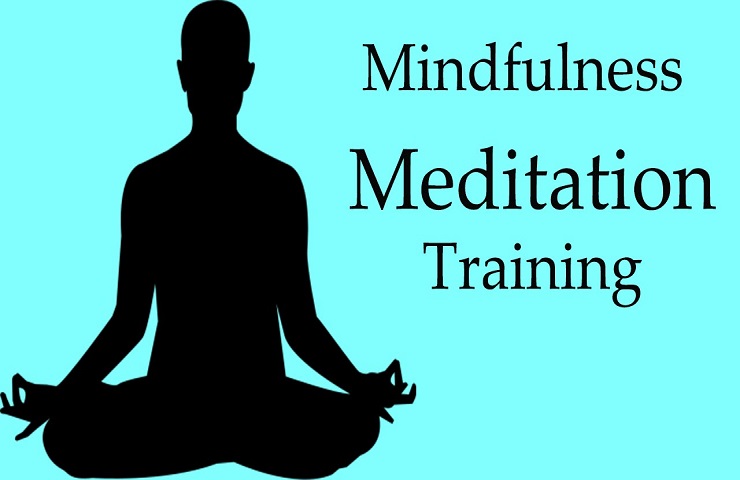Cultivating Compassion: How Mindfulness Meditation Unlocks Innate Prosocial Behaviors
 Exploring the Science Behind Meditation’s Power to Foster Empathy and Altruism Without Explicit Ethical Instruction
Exploring the Science Behind Meditation’s Power to Foster Empathy and Altruism Without Explicit Ethical Instruction
In today’s fast-paced world, the practice of mindfulness meditation has evolved beyond a simple stress-relief technique into a powerful tool for nurturing the inherent prosocial qualities within us. Recent research, as highlighted in articles on SpeciesUniverse.com and PSY Post, reveals that mindfulness meditation training can promote prosocial behaviors—such as empathy, compassion, and altruism—even when no explicit ethical instructions are provided. This phenomenon suggests that the very act of being mindful can cultivate an inner sense of connection and moral awareness, tapping into deep-rooted aspects of human nature.
The original study explored in these articles demonstrates that mindfulness practices can positively affect our interactions with others, without the need for prescribed moral guidance. By training individuals to focus on the present moment and observe their thoughts non-judgmentally, meditation creates a mental environment where empathy can flourish. Such findings resonate with the idea that when our minds are clear and calm, we are more likely to act in ways that benefit not only ourselves but also our broader communities. This transformative potential has profound implications for both personal growth and social cohesion.
Beyond the laboratory, numerous experts have noted that mindfulness meditation helps reduce stress and anxiety, which in turn can diminish defensive, self-centered behaviors. Harvard Medical School and other reputable institutions have documented how mindfulness fosters neural changes in areas of the brain linked to self-regulation and empathy. As these studies suggest, by altering the way our brain processes information, mindfulness opens the door for an enhanced capacity to engage in altruistic behavior—even when we are not consciously striving to be ethical. This insight challenges the traditional view that prosocial behavior requires explicit moral instruction.
The implications of these findings extend far into everyday life. In educational settings, workplaces, and community programs, integrating mindfulness training has been shown to not only improve individual well-being but also strengthen social bonds. In some cases, schools that have implemented mindfulness curricula report a decrease in bullying and an increase in cooperation among students. For John and other enthusiasts seeking to explore the intersection of mindfulness and social evolution, these results highlight a promising avenue where personal practice can ripple outwards to foster a more empathetic society.
Moreover, mindfulness meditation’s impact on prosocial behavior offers a fresh perspective on how we approach personal transformation. Unlike rigid ethical doctrines, mindfulness invites us to experience life in a way that naturally leads to caring for others. This organic progression is deeply empowering, as it suggests that ethical living is not about following external rules but about awakening an inner capacity for kindness and connection. Such a shift in perspective can be particularly liberating for those who have felt constrained by prescriptive moral systems, enabling a more personal and intuitive approach to living compassionately.
Complementing these insights, additional research from neuroscience and psychology reinforces the connection between meditation and enhanced social behavior. Studies have revealed that long-term practitioners of mindfulness often exhibit increased activity in the prefrontal cortex—a brain region crucial for decision-making and empathy. This neurological evidence supports the idea that mindfulness can lead to more deliberate, thoughtful actions in social contexts, aligning with the observations made in the original articles. As we continue to uncover the mechanisms behind these changes, the broader message becomes clear: the cultivation of mindfulness is a pathway to a more compassionate and connected society.
Finally, the convergence of scientific inquiry and contemplative practice underscores an important truth for our modern era. In a world where divisiveness and self-interest often seem to dominate, mindfulness meditation offers a counterbalance—a way to tap into our collective humanity. For John and readers of SpeciesUniverse.com, embracing mindfulness is not just a personal health strategy but a revolutionary act that reaffirms our shared potential for goodness. By fostering prosocial behaviors from within, we contribute to a more harmonious society where ethical actions arise naturally from a mindful, well-tuned inner life.
Key Takeaways:
- Mindfulness Fosters Natural Empathy: The practice of mindfulness meditation can enhance our inherent prosocial tendencies by cultivating a present and reflective state of mind.
- Intrinsic Benefits Without External Instruction: Studies show that even in the absence of explicit ethical directives, mindfulness naturally encourages compassionate and altruistic behaviors.
- Broader Societal Impact: Integrating mindfulness into various settings—from schools to workplaces—can lead to improved social interactions and a more empathetic community.
“The quiet strength of mindfulness lies in its ability to awaken our innate compassion, guiding us toward a deeper connection with ourselves and others.”
Join the conversation on SpeciesUniverse.com today and explore further articles, research insights, and personal stories that delve into how mindfulness and science together are shaping a more connected, conscious future. Engage with our community, share your experiences, and be part of a movement that celebrates the profound power of the human mind to nurture a better world.
More details: here
References:
-
Psypost.org (Website)TEDx Talks (YouTube Channel)


Leave a Reply